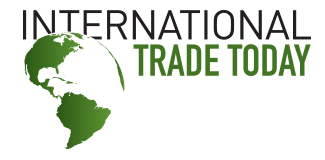Ford to Pay $365M to Settle Customs Violations Charges on Cargo Vans

Ford Motor Company agreed to pay $365 million to settle allegations that it knowingly undervalued hundreds of thousands of cargo vans, DOJ announced. The settlement comes five years after the U.S. Court of Appeals for the Federal Circuit ruled that CBP properly classified Ford's Transit Connect vehicles as cargo vans, dutiable at 25%, and not as passenger vans, dutiable at 2.5%.
Ford had sought to have its vans classified as passenger vehicles by including stripped-down rear sets which were removed right after clearing customs. Though Ford initially found success at the Court of International Trade (see 1708170032), the Federal Circuit found the rear seats to be a mere "artifice" and not legitimate tariff engineering (see 1906070035). The auto giant appealed to the Supreme Court (see 2002190033), which declined the case (see 2006300045).
Of the $365 million, $183,476,539.62 is restitution for lost duties, with the remainder, over $181 million, constituting penalties. The settlement also requires Ford to request from CBP a "prospective ruling as to classification for certain vehicles that were not previously imported" into the U.S. that Ford starts importing in the next five years. Without admitting liability, Ford additionally agreed to drop a suit at the CIT on the Transit Connect vans.
John Peterson, customs attorney for Neville Peterson, found the development to be a "rather gentlemanly settlement, even with the big numbers." CBP had yet to even sue Ford to collect penalties and the settlement didn't require Ford to admit liability, Peterson noted. In addition, the penalty portion of the $356 million total was less than the duty restitution, "a typical settlement range for a 19 U.S.C. § 1592 violation grounded in simple negligence," Peterson said.
Peterson noted that the requirement that Ford seek rulings on the classification of all new or redesigned vehicles for the next five years is a "first." He said this will see the company forgo using advice from its counsel or brokers since everything must now be approved by CBP. While getting a ruling is optional, Peterson said, he has found the U.S. to increasingly use the fact that an importer didn't request a ruling against it "in various proceedings."
Key to Ford's defense at the Federal Circuit was the idea that an importer's goods are classified in their condition as imported and that the vans, as imported, were passenger vans. Peterson said that while this is a "well-settled rule," it's also true that an importer "has the right to put its goods up for importation in the form that will attract the lowest rate of duty." For instance, other companies have gotten around a 25% light truck tariff by importing cab chassis and cargo bodies separately them assembling them in the U.S., Peterson said.
"Ford strongly disagrees with many of the characterizations in the DOJ’s statement and admits no liability in this matter," Ford said in an emailed statement. "But in the interest of moving on from this complex, decade-old dispute, we have agreed to settle the matter once and for all."
The U.S. alleged that from April 2009 to March 2013, Ford imported its cargo vans from Turkey to the U.S. using its "sham rear seats" maneuver to "make the vans appear to be passenger vehicles." Ford classified the vans under Harmonized Tariff Schedule heading 8703 as "Motor cars and other motor vehicles principally designed for the transport of persons," while CBP said the proper home was under heading 8704 as "Motor vehicles for the transport of goods."
The settlement noted that, in addition to the "sham seats," other features of the vehicles made it clear that they weren't meant to mainly transport passengers, "including rear doors that were designed for ease of loading cargo" and rear seats without headrests and "certain wires that provide lumbar support." Ford knew that the vans were meant to be sold as cargo vehicles and not passenger vehicles, the U.S. alleged.
The government claimed that Ford "erroneously" calculated non-dutiable charge deductions, double-counted American goods assembled abroad components under HTS heading 9802, used "incorrect" heading 9802 values, used an improper exchange rate, committed battery electric vehicle classification errors and failed to declare engineering and tolling costs.
Acting CBP Commissioner Troy Miller said that the settlement, "which is one of the largest customs penalty settlements in recent history, demonstrates that U.S. Customs and Border Protection will pursue even the largest companies to ensure that all importers follow the rules; our intent is to enforce the customs laws fairly, which means that non-compliance is not an option for anyone." Principal Deputy Assistant Attorney General Brian Boynton added that importers "have an obligation to truthfully declare the nature of their products and pay the duties that are owed."



